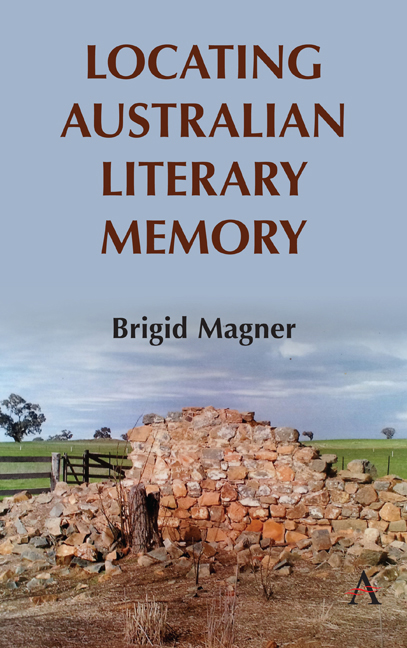Book contents
- Frontmatter
- Contents
- List of Illustrations
- Acknowledgements
- Introduction: Remembering Absent Authors
- Chapter One Adam Lindsay Gordon's Grave
- Chapter Two Joseph Furphy in the Riverina
- Chapter Three Henry Handel Richardson and the Haunting of Lake View
- Chapter Four Henry Lawson Country
- Chapter Five The Multiple Birthplaces of A. B. ‘Banjo’ Paterson
- Chapter Six Nan Chauncy's Sanctuary
- Chapter Seven Living Memorials: The Houses of Katharine Susannah Prichard and Eleanor Dark
- Chapter Eight Statue Mania: P. L. Travers and the Appeal of Mary Poppins
- Chapter Nine Kylie Tennant's Hut
- Chapter Ten The David Unaipon Monument at Raukkan
- Conclusion: Towards an Expanded Repertoire of Literary Commemorations
- Notes
- Index
Introduction: Remembering Absent Authors
Published online by Cambridge University Press: 10 December 2019
- Frontmatter
- Contents
- List of Illustrations
- Acknowledgements
- Introduction: Remembering Absent Authors
- Chapter One Adam Lindsay Gordon's Grave
- Chapter Two Joseph Furphy in the Riverina
- Chapter Three Henry Handel Richardson and the Haunting of Lake View
- Chapter Four Henry Lawson Country
- Chapter Five The Multiple Birthplaces of A. B. ‘Banjo’ Paterson
- Chapter Six Nan Chauncy's Sanctuary
- Chapter Seven Living Memorials: The Houses of Katharine Susannah Prichard and Eleanor Dark
- Chapter Eight Statue Mania: P. L. Travers and the Appeal of Mary Poppins
- Chapter Nine Kylie Tennant's Hut
- Chapter Ten The David Unaipon Monument at Raukkan
- Conclusion: Towards an Expanded Repertoire of Literary Commemorations
- Notes
- Index
Summary
Such monuments, alas, too often are a saving of face by the living in regard to the neglected dead.
– Miles Franklin (1942)The language of literary commemoration is shot through with references to memory. The word ‘monument’ is derived from the Latin word ‘monere’, to name. ‘Memorial’ comes directly from ‘memorialis’, meaning ‘of or belonging to memory’. Monuments are structures which usually refer to something other than themselves, recalling people or events from the past. A memorial or monument exists both in physical space, as a ‘landmark’, and in historical space as a ‘historic site’, the commemoration of an event or person in history. Literary memorials or commemorations function as portals for remembrance or bulwarks against forgetting.
In this book, I attempt to ‘read’ places imbued with literary memory around Australia, connecting the practice of reading with the material reality of location. I define ‘literary memory’ as the remembrance of particular figures, works or characters which are associated with a place or a ‘country’. I am concerned with the ways in which literary memory is located or ‘fixed’ in the form of certain tributes or artefacts and the ceremonies practiced in relation to them. Whereas some forms of literary memory gain authority and are legitimised through organisations or institutions, others remain marginal.
Pierre Nora has famously argued that the development of modern memory culture, especially the rise of specific sites of memory, is in inverse proportion to the demise of traditional societies in which people were connected to the past through practices such as oral storytelling. He contends that our contemporary preoccupation with lieux de memoire or ‘places of memory’ derives from the disappearance of milieu de memoire or ‘real environments of memory’. For Nora ‘memory is life, borne by living societies founded in its name’ while history is ‘the reconstruction, always problematic and incomplete, of what is no longer’.
Francois Hartog claims that Nora misunderstands collective memory, regarding it as a vivid recognition and a faithful reproduction in opposition to history, which is regarded as external and detached. Hartog contends that we should talk about a change of regimes of memory: oral societies are ruled by the regime of the transmission of memory, whereas today we are ruled by a memory obliterated by the written word.
- Type
- Chapter
- Information
- Locating Australian Literary Memory , pp. 1 - 16Publisher: Anthem PressPrint publication year: 2019



